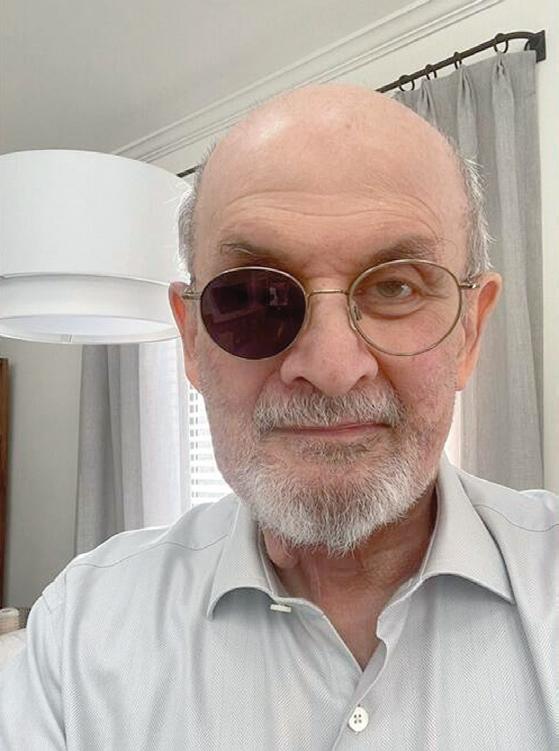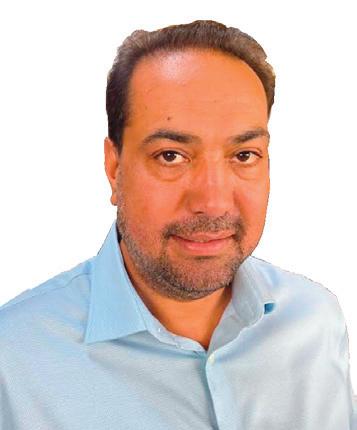
1 minute read
Rushdie Returns with New Book
new york: A little over six months ago, on August 12, as writer Salman Rushdie waited to deliver a lecture on the importance of the United States offering asylum to artistes in exile at New York’s Chautauqua Institution, a commotion broke out in the aisles.
A young man clad in black had made his way on to the stage, and before anybody could react, had stabbed the 75-year-old repeatedly.
It was the threat that had foreshadowed Rushdie’s life and career for over three decades since the publication of ‘The Satanic Verses‘ (1988) and the issuance of the infamous fatwa by Iran’s religious leader Ayatollah Khomeini in February 1989 for insulting Islam in the novel. Now, it seemed to have made good on its sinister promise. But there’s something about Rushdie that spells insouciance and dig-one’s-heels-in resilience. Six months later, Rushdie is back with a new novel, ‘Victory City‘ (Jonathan Cape), and with his spirits intact.
In an extensive piece in The New Yorker magazine, for which the writer spoke to its editor David Remnick, new details have emerged about the attempted assassination and its aftermath.
Here are some highlights from Remnick’s article in The New Yorker:
Hadi Matar, Rushdie’s 24-year-old assailant of Lebanese origin, had read about the event at Chautauqua Institution on Twitter. A visit to his estranged father in Lebanon in 2018 had not improved their relationship. Instead, Matar had returned to his mother and twin sisters back at New Jersey, disgruntled.


Back in the US, he became withdrawn and religious, unable to keep a job and disinclined to venture out of his basement room.
If he did go out, it was only to a gym to train. Even there, he kept his distance, before dropping his membership altogether.
A day before the attack, he took a bus and then a rental car to the venue, walking around and getting a feel of the place. That night, he slept under the stars.
At the event, Rushdie was on stage with long-time friend Henry Reese, cofounder of City of Asylum, a non-governmental organisation in Pittsburgh, that offers assistance to writers in exile. When Matar attacked the writer, it would be Reese who would be Rushdie’s first point of defence.
He threw himself at Matar, tackling him from the back and holding on to his legs, despite being stabbed himself.
When asked, Rushdie had one thing to say for Matar — he called him an “idiot”: “I don’t know what I think of him, because I don’t know him,” he tells Remnick.-- Indian Express







